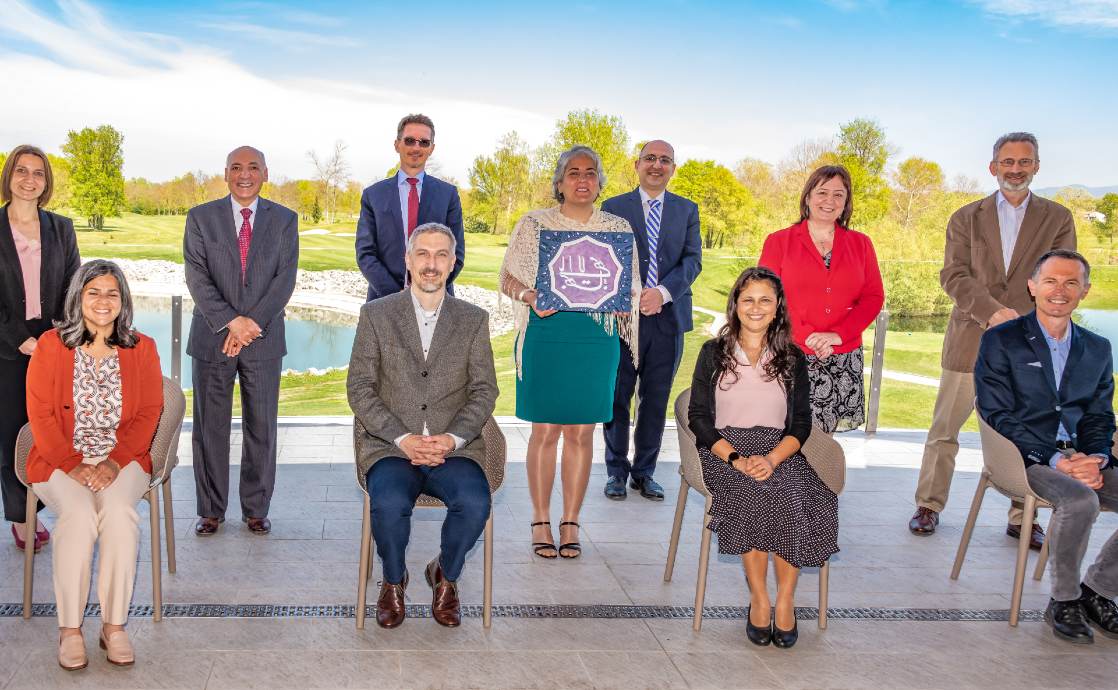The establishment of Croatia’s first Bahá’í National Spiritual Assembly marks a formidable step towards the realization of unity and collective governance within the Bahá’í community. This momentous occasion not only signifies the growth of the Bahá’í faith in Croatia but also exemplifies its core teachings of unity, collaboration, and democratic principles. The election of such an assembly epitomizes the aspirations of Bahá’ís worldwide to foster a world characterized by mutual respect, justice, and harmonious relationships.
At its core, the Bahá’í faith elucidates the significance of unity as a paramount objective. The establishment of a National Spiritual Assembly serves as a manifestation of this vision, emphasizing the importance of collective decision-making and governance within the framework of Bahá’í principles. Through the democratic election process, community members engage in the shared responsibility of selecting trusted representatives who exemplify the qualities outlined in Bahá’í teachings, such as integrity, wisdom, and a commitment to service.
Historical Context and Evolution of the Bahá’í Faith in Croatia
To fully appreciate the implications of the National Spiritual Assembly’s establishment, one must delve into the historical context of the Bahá’í community in Croatia. The origins of the Bahá’í faith can be traced to the mid-19th century in Persia, where it emerged as a progressive response to societal and spiritual deficiencies. The teachings of Bahá’u’lláh, the founder of the faith, emphasized the oneness of humanity and the necessity for a global society built on justice and equity.
In Croatia, the Bahá’í community has witnessed significant growth over the years, nurturing a vibrant cultural tapestry enriched by diverse backgrounds and experiences. The establishment of the National Spiritual Assembly signifies not only a local triumph but also a critical juncture in the faith’s evolution. As the Bahá’í community continues to grow, so too does its capacity to contribute to the broader discourse on spiritual development and social transformation.
The Role and Significance of the National Spiritual Assembly
The National Spiritual Assembly serves as the principal administrative body for the Bahá’í community within a nation. Composed of elected representatives, the assembly is endowed with the responsibility to guide, support, and coordinate the activities of local communities, fostering an environment conducive to spiritual growth and social action. It acts as a bridge between the local and international Bahá’í communities, facilitating the exchange of ideas, resources, and experiences.
The assembly embodies a system of representative governance that mirrors the training and development of its constituents. This approach underscores the Bahá’í commitment to empowering individuals, enabling them to fulfill their potential as catalysts for social change. Each member is imbued with a sense of stewardship towards the community, nurturing a collective ethos that reinforces unity and collaboration.
Unity in Diversity: Embracing Multiculturalism
One of the hallmark attributes of the Bahá’í teachings is their unwavering commitment to the principle of unity in diversity. The establishment of the National Spiritual Assembly not only represents the culmination of local efforts but also exemplifies the profound connection among diverse members of the community. This diversity is not merely a characteristic; it serves as an enriching factor, fostering innovation, creativity, and a broader understanding of disparate viewpoints.
Embracing multiculturalism offers an avenue for Bahá’ís in Croatia to engage meaningfully with the wider society. Through initiatives that promote interfaith dialogue, cultural exchange, and community building, the Bahá’í community can encourage collaboration among various segments of society, ultimately fostering a spirit of unity that transcends boundaries.
Guiding Principles of the Assembly’s Functioning
The operational principles that underpin the functioning of the National Spiritual Assembly are pivotal to its success. Transparency, consultation, and accountability serve as foundational pillars that govern decision-making processes. By encouraging open dialogue, assembly members can engage in fruitful discussions that respect differing opinions while remaining focused on the collective welfare of the community.
Furthermore, the assembly’s commitment to service and humility enhances its credibility and accessibility. It functions not as an authoritarian body, but as a facilitator, guiding the community towards achieving collective aspirations rooted in the Bahá’í teachings. This model ensures that the assembly remains responsive to the needs of its constituents, cultivating a climate of trust and cooperation.
Conclusion: A Prologue to Future Endeavors
The election of Croatia’s first Bahá’í National Spiritual Assembly heralds a new chapter in the journey towards unity and collaborative governance. As the assembly embarks on its mission to guide the Bahá’í community, it stands poised to make significant contributions to both the spiritual and social fabric of Croatian society. By exemplifying the core principles of the Bahá’í faith, such as unity, justice, and consultation, the assembly embodies a dynamic force for positive change.
This pivotal milestone serves not only as an internal achievement for the Bahá’í community but also as an invitation to engage with the broader society. The assembly’s endeavors will undoubtedly resonate beyond the confines of its governance, fostering a culture of dialogue, acceptance, and cooperation among all peoples. Indeed, the establishment of the National Spiritual Assembly is more than an organizational milestone; it is a clarion call for unity in a world yearning for connection and understanding.
